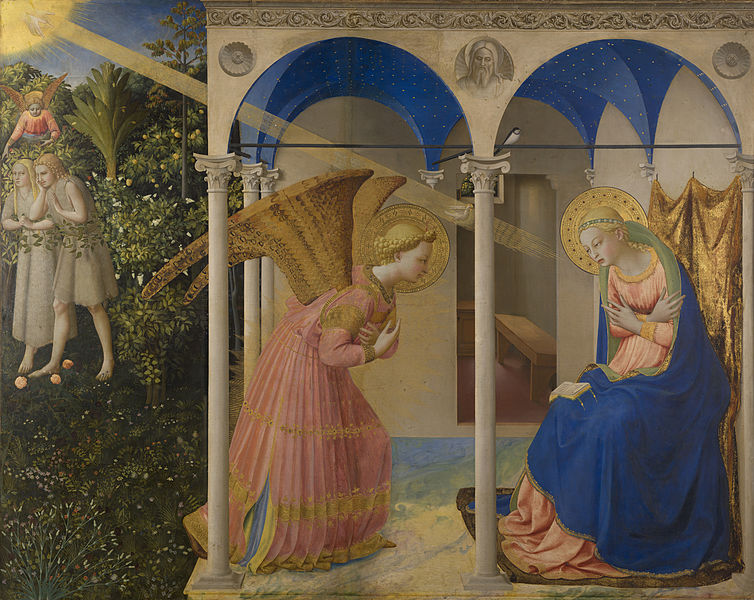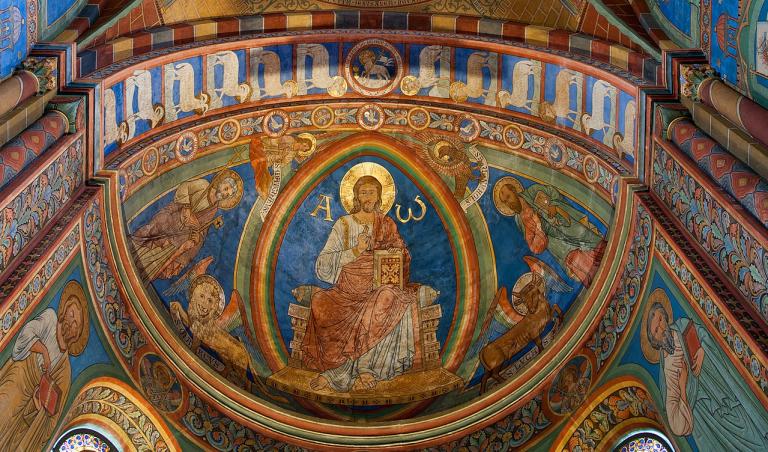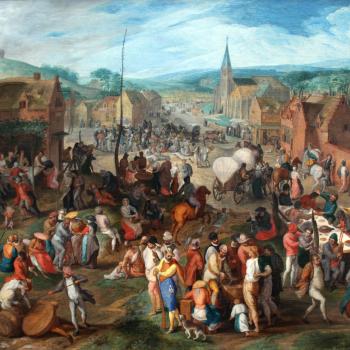David Russell Mosley
Ordinary Time
Christ the King
23 November 2014
The Edge of Elfland
Hudson, New Hampshire
Dear Friends and Family,
I have decided to begin a series of “unspoken sermons”, a title, if not an idea, I have stolen from George MacDonald. In truth, I am still in the process of discerning my vocation. Am I called to be an academic theologian, a theological priest, a poet, an author? I honestly don’t know. However, I know that of ultimate importance to me is the feeding of God’s flock, sacramentally, theologically, and spiritually. I will be “preaching” through the Gospel texts in the Revised Common Lectionary.
Matthew 25.31-46
In today’s Gospel reading we are reminded of a hard truth. We are called to feed the hungry, give drink to the thirsty, welcome strangers, care for the sick, and visit the imprisoned. It seems that it is at least partly on this basis that we will be judged when Christ returns. For some, this is an uncomfortable truth. We think of our salvation being conditioned on the choice to follow Christ, and of course, it is. Yet there is more to it. Remember, Christ tells us to pray for forgiveness in the same manner in which we show forgiveness to others. Well here, Christ reminds that our actions within this world, caring for the lowly, is caring for him and is a condition for being part of his flock. It may be a hard truth, but it is the truth nevertheless.
Now this passage seems rather pragmatic in focus. When Christ returns he will separate the wicked from the righteous. His standard of measurement will include righteousness toward the marginalised. Many would perhaps set the focus on the charitable part, that righteous acts are essential for one to have a life in Christ and stop there. Some, might choose instead to focus on the apparent reality of Hell by noting that there is a separation between the wicked and the righteous. Some might want to emphasise that righteous acts are an outflow of our life in Christ and not a condition for it. But there is yet another aspect that I wish to bring out, one that, I hope will tie together all the others.
The passage begins, “‘When the Son of Man comes in his glory, and all the angels with him, then he will sit on the throne of his glory.'” Those who know me well will know that I have something of an obsession with angels. Angels, for me, represent the enchanted aspect of the cosmos. They serve as reminders that the world of the senses is not all that there is, that another world upholds this world, is the foundation for this world. So there is a cosmic and enchanted aspect of this passage that I think we often miss since our general culture does not view the world this way. For many in our culture, the world is reducible to matter, to what we can see, feel, smell, hear, and taste. The worldview of the Scriptures of the church up to the late Middle Ages, is one of order and enchantment. Angels can come and break you out of prison as they did for Peter. Water can be turned into wine, as Christ did at Capernaum. Wine and bread can become flesh and blood. Churches can be truly sacred spaces where eternity and time meet in the liturgy. What, however, has all this to do with the rest of this passage, the feeding and caring for the poor and the oppressed?
Perhaps first and foremost it allows for a more literal reading of this passage, that is taking the words for what they say. Christ tells us that it is him we are feeding, clothing, warming, etc., when we do these things for the poor. In a sense that we cannot fully comprehend we are truly rendering these things to Christ himself insofar as he is actually present in the poor and oppressed. Second, the Scriptures are quite clear that angels serve many functions. One of those purposes is caring for, guiding, and guarding us. If the angels, who are so much higher than we are in our current state, care for us, how much more ought we to care for those who are human like us, fallen like us, and simply in poorer circumstances than ourselves. Third, and finally, the opening passage tells us that it is when Christ comes in glory and sits on his throne of glory that he will call us to account for the care of the poor. Clearly, therefore, the glory of Christ in part subsists in justice for the downtrodden. When all is made new, this will include the enrichment of the poor, and quite possibly the impoverishment of the rich. So the worldview evident in the opening passage of today’s reading is actually the foundation for our caring for the poor. Today we celebrate Christ the King. In Christ’s Kingdom, there are to be no poor. To this we are called, so this we must do.
Go in peace, to love and serve the Lord.
Sincerely yours,
David











